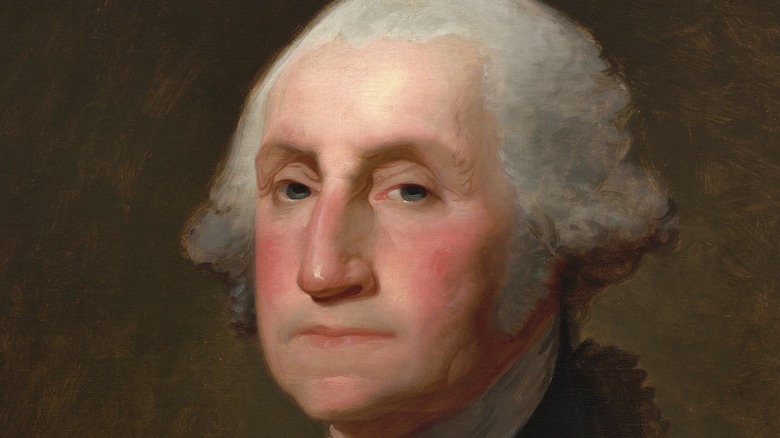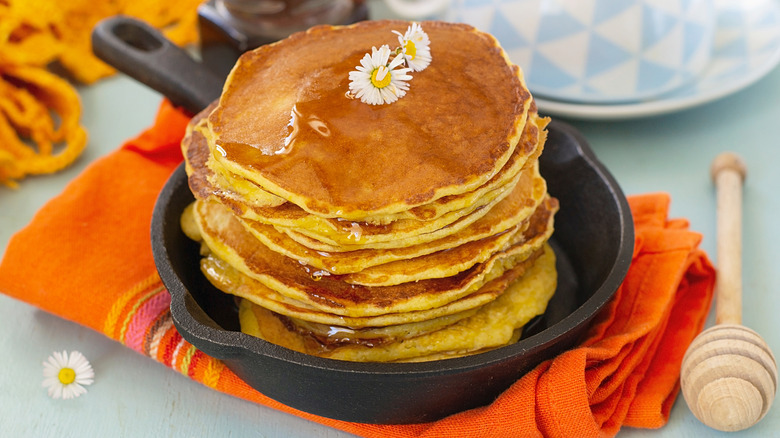What George Washington Typically Ate In A Day
As with the natural and unnatural loss of most external body parts, false teeth have existed for centuries to accommodate those who were not fortunate enough to have their own. The earliest known set came from the ancient Etruscans, and were made from ivory, bone, and actual teeth from both humans and animals (via Silverado Family Dental). As human teeth were not often a readily available material, they proved to be a valuable commodity for both the impoverished seeking to make ends meet, and for those who could source them through other means (via BBC).
In fact, battlefields such as that of Waterloo were sometimes scavenged by opportunistic people, hoping to find dead soldiers with teeth suitable for extraction and sale. Until his death in 1799, this was the state of George Washington's oral health — confined to wearing an uncomfortable collection of discarded teeth and ivory (via History). Given their ill-fit, as this was long before rubber dentures and dental paste, the teeth were frequently painful and of minimal use when eating (via Smithsonian Magazine).
Washington's diet was in part facilitated by being a slaveholder
While George Washington enjoyed many foods in his lifetime, he was eventually forced to settle for soft foods that did not require much chewing. His breakfast typically consisted of "Hoecakes," a pancake-like food that he ate with honey and tea (via All Things Liberty). According to PBS, he was otherwise mostly limited to soups, puddings, and similarly soft meals. This is despite the fact that he frequently hosted elaborate banquets with more substantial courses for guests.
Fish, one of Washington's favorite foods, was served to him in the form of a hash, which also consisted of similarly chopped beets, potatoes, onions, and pork. This and other dishes meant to accommodate his lack of teeth were for a time prepared by Hercules Posey, a slave and chef (per The Philadelphia Inquirer). In a morbid reflection on his character, Washington praised Posey's culinary skill, but moved him to his home at Mount Vernon so that Posey would not be eligible for Philadelphia's Gradual Abolition Act (via Mount Vernon). When he later escaped captivity and fled to New York, Washington futilely tried to find and return him (via NPR).

